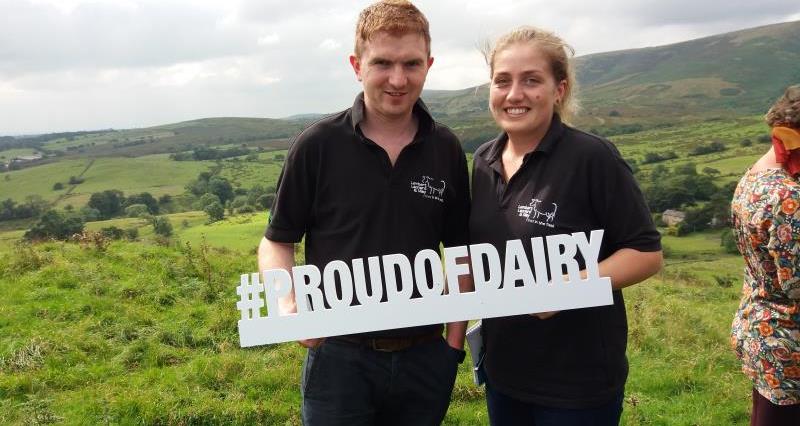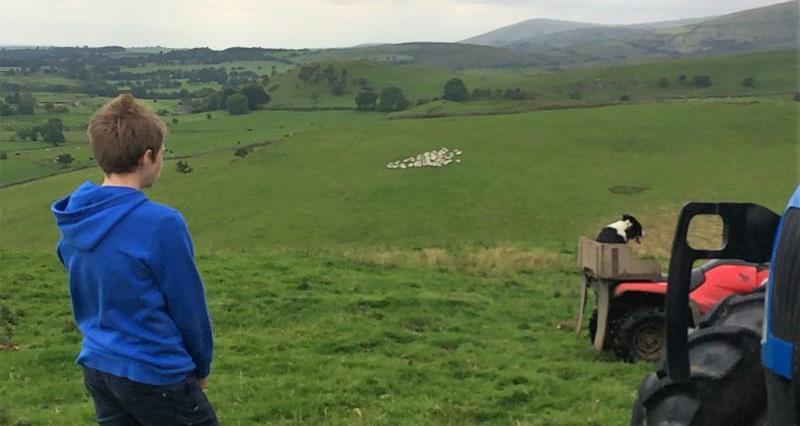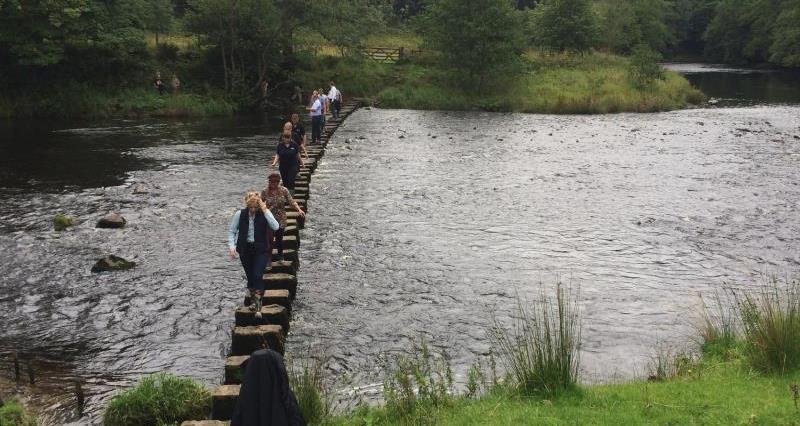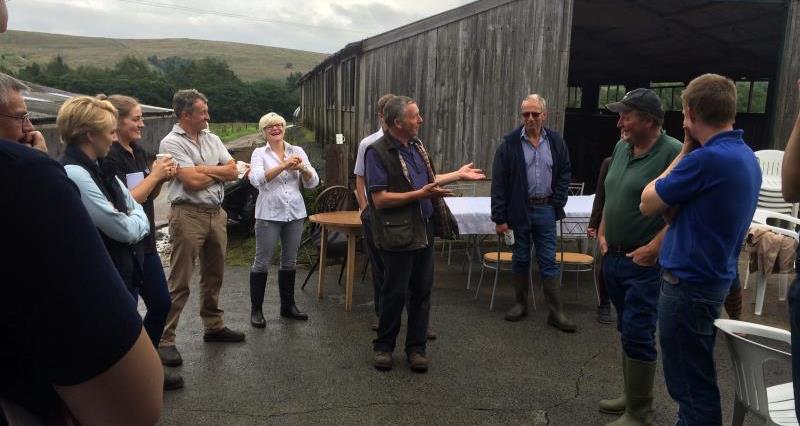She writes:
After a delicious lunch of home-cooked delights, Michael Oakes, National Dairy Board Chairman, kicked off an afternoon of talks. Michael informed the audience of the NFU dairy team’s work towards ensuring a better future for dairy farmers; building better and fairer supply chains, promoting the best of British, and building a better business environment to ensure farm competitiveness. He also talked specifically of the NFU’s efforts to counteract dairy’s negative publicity, and the launch of #ProudOfDairy campaign; promoting the health benefits of dairy products and the high welfare of British cows. Poignantly, this farm visit coincided with the launch of the campaign, as well as the vegan activist organised ‘World Plant Milk Day.’ So, despite limited internet and mobile signal, the opportunity was not missed to capture and promote dairy’s positive messages.

Following Michael's talk, Steven Jacobs of OF&G (Organic Farmers and Growers) stepped up to inform the audience of growth within the sector. Now entering its fifth consecutive year of growth and contributing over £2.09bn to the British economy; the UK organic sector now represents 1.5% of the UK food and drink sector, and reports growth of up to 7.2%. Top organic growth categories include dairy and horticulture products, exhibiting sales increases of up 28% as consumer trust and interest in this alternative food production system rise. Yet, Steven voiced that improvements can still be yielded as we lag behind similar countries, such as Denmark and Germany, in our consumption of organic produce.
Rafik Adam and Usman Patel of ‘Enterprise 4 All’ were also introduced and highlighted the importance ethnic communities present to UK sheep meat production markets; representing 3% of the population yet accounting for 20% of consumption. Ahead of the large Muslim festival Eid al-Adha next week, where vast quantities of lamb are expected to be consumed, they stressed the need for increased social and economic integration between farmers and the countryside, with ethnic communities; driving home the message that the British countryside is open for business, and open to all.
The keynote of their discussion fed into John Alpe’s talk and farm tour very well; featuring educational and concessionary access, and environmental stewardship. Johns previous involvement in farm management for Mysercough College sparked his involvement with educational access. Now, John and his team run around 25 visits a year; hosting groups on farm in addition to travelling into schools. Through this, John engages with a variety of different groups, ranging from university graduates to groups with learning disabilities and city-centre school children.

John has also implemented 3.5km of dedicated concessionary disabled access paths around his farms. Any disabled person is able to use these metal tracks with an all-terrain mobility scooter, 365 days of the year. To promote the existence of such a niche scheme, John also hosts three dedicated access dates at the beginning of every August and provides the scooters free-of-charge, along with guided tours of the route. John has also organised wheel-chair access days whereby users can admire John’s own and neighbouring farms, transported via tractor and trailer.
Another thing making John’s farm tour so enjoyable was his obvious passion for environmental preservation and regeneration. As “part of [his] DNA,” every acre John farms is entered into some environmental scheme. Our afternoon tour of the farm encompassed panoramic views of John’s hard work which includes 50-acres of heather regeneration, 15-acres of wild flower hay meadows, around 200-acres involved in ground nesting and wading bird habitats via HLS, species rich grassland, woodland regeneration, and 250-acres producing primrose, orchids and ragged robin.
We also caught a glimpse of John’s 40 cow organic dairy herd. All of John’s milk is sold to OMSCO (Organic Milk Suppliers Cooperative), earning him around 40p per litre. Yields of around 6,000 litres reflect John’s low input system which has seen stocking rates decrease relative to its conventional past. John also professes the lower stocking density makes tasks easier to manage and has contributed to a lower incidence of health problems within his herd and flock.
From his flock of 1,000 breeding ewes, all of John’s commercial lambs are sold direct to slaughter through nearby 2 Sisters Food Group. Many of these lambs are purchased by Tesco and John receives an organic premium of around 10p/kilo.

After a short sheep herding demonstration and a brisk walk down the valley to visit the famous ‘Bowland Stepping Stones,’ the tour was rounded off by delicious afternoon tea upon our return to the farmyard.
